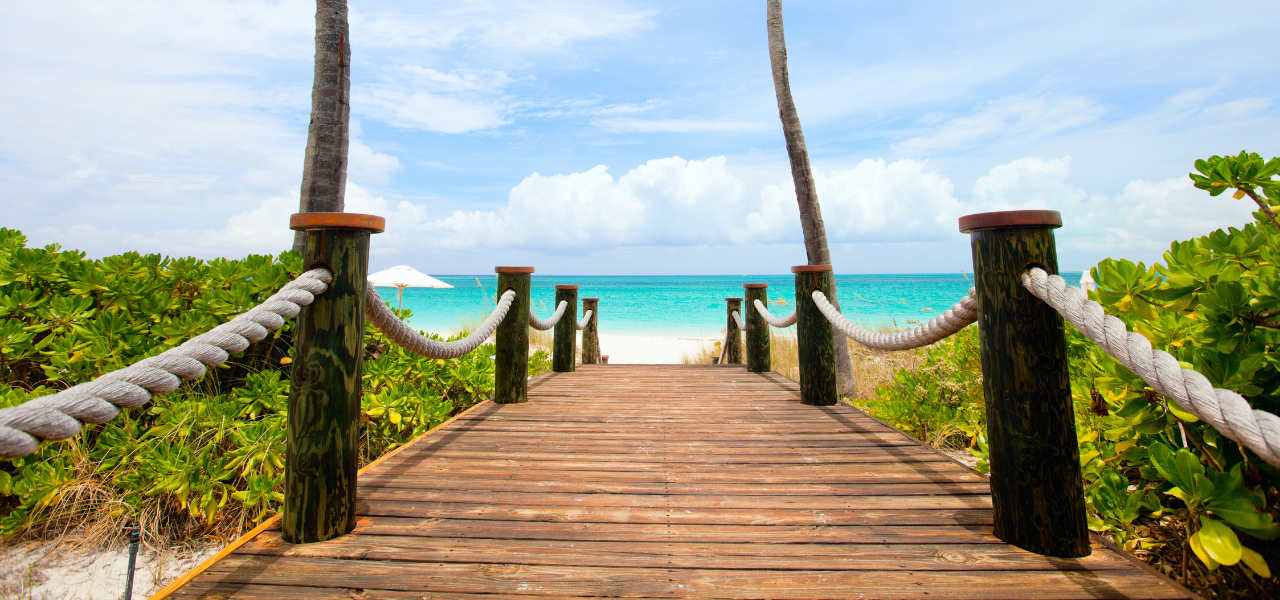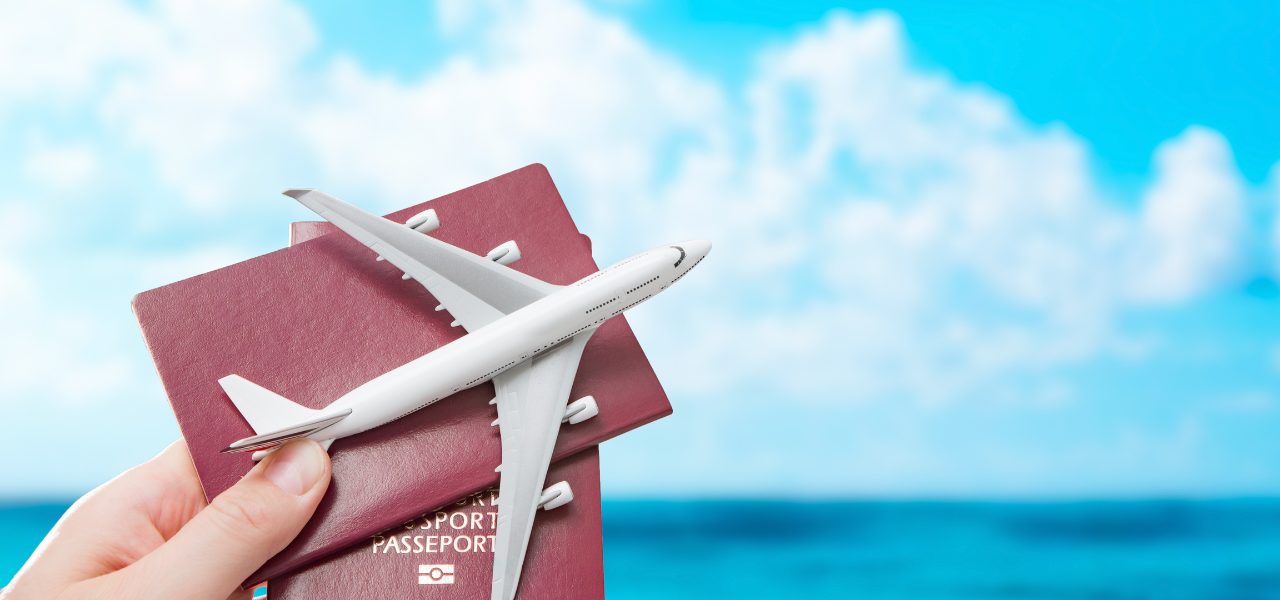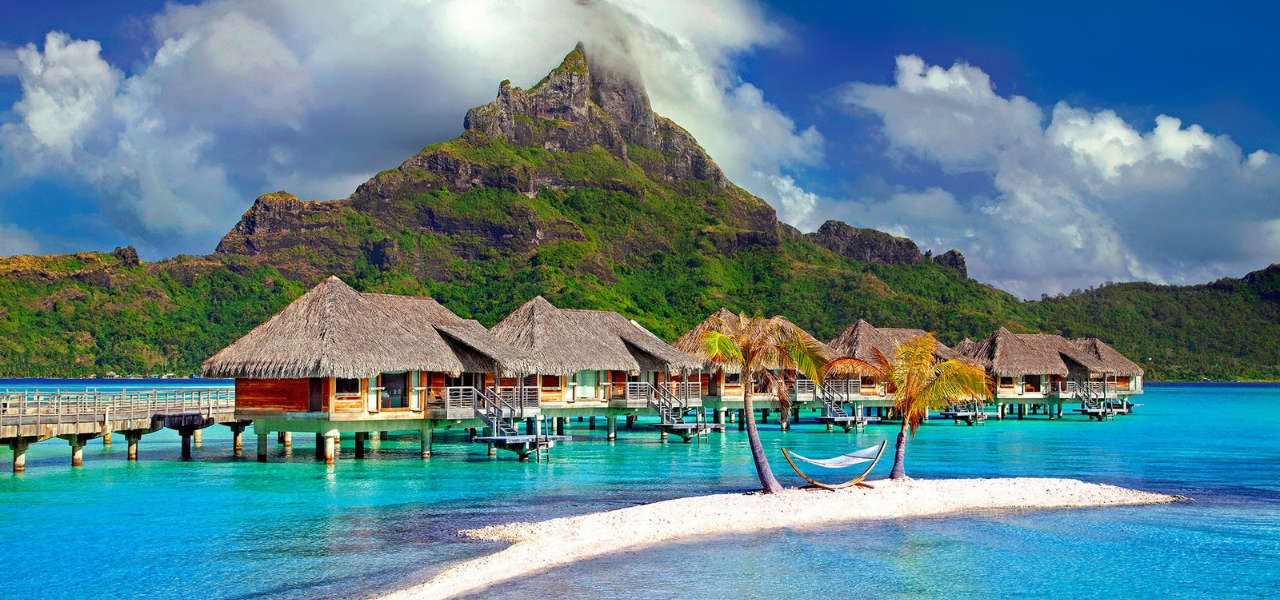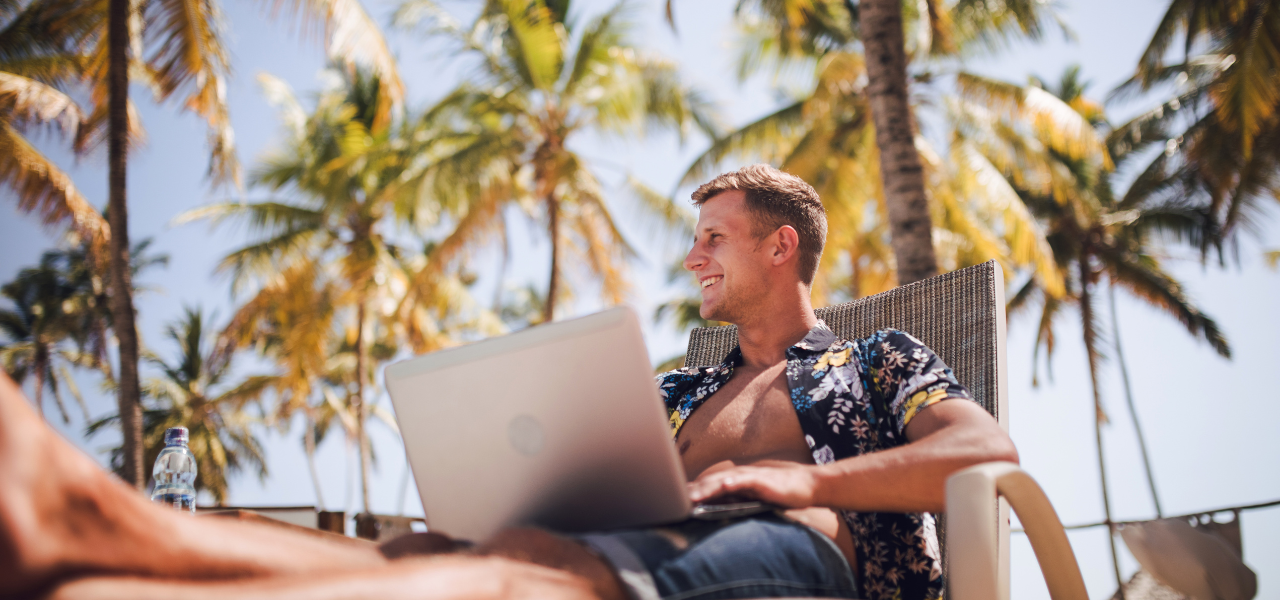Residency vs Citizenship by Investment - Key Differences Explained
In this article, we compare residency vs citizenship by investment as routes to obtaining the right to live and work in a country and the benefits and drawbacks of each. While citizenship grants full, lifelong rights and obligations within a country—including the right to vote, access public services, and pass on citizenship to descendants—residency allows a person to live in a country temporarily or permanently without granting full citizenship rights. Citizenship by investment provides a fast track to citizenship in return for a significant financial contribution, often with minimal or no residency requirements, while residency programs (such as golden visas or digital nomad visas) permit individuals to live and work in a country, often as a stepping stone toward naturalisation.

Firstly, it is important to note that citizenship of a country and the right to residency in a country are not interchangeable terms. Understanding the distinction between residency vs citizenship by investment is key when considering a move abroad for work, lifestyle, or wealth planning purposes.
Citizenship carries all the rights and obligations of a citizen of the relevant country. Such rights and obligations are common to all citizens and apply equally to all and will always include the right to reside in such a country.
Residency is the right to reside in a country and attracts the rights and obligations that are set out in the residency laws of the relevant country. Residency can be temporary or permanent, and in many cases can be an intermediate step to obtaining citizenship of such a country following a period of residency. A typical example of residency would be where a person spends time in a country to carry out work, such as a placement in a foreign office of the company they work for or where their work is not location-specific and they wish to reside elsewhere than their current country of citizenship.
Most countries limit the length of time a person may stay without obtaining residency or citizenship, and a visa may be required either to enter the country or to remain for a stated period of time. There are some exceptions to this general rule, such as the European Union (EU) or the Organisation of Eastern Caribbean States (OECS), where citizens of any country within the EU or OECS may live and work in any other country within the EU or OECS, respectively.
Citizenship by investment is a route to obtaining citizenship of a country by investing in its economy. As opposed to residency programmes, most CBI programmes do not require the holder to spend significant (or in some cases such as Grenada, no) time in the country to obtain citizenship.
Now, let’s dig a little deeper into the two types of programmes and compare residency vs citizenship by investment.

What is Citizenship by Investment?
Citizenship by Investment is the obtaining of full citizenship of a country by contributing to that country’s economy. The typical routes are by way of donation to the country directly or by investing in real estate or business in the country. Applicants are subject to stringent due diligence to ensure it is appropriate for them to become citizens.
Once citizenship is granted, the applicant is then a full citizen of the country and has the right to: reside and work in; utilise the infrastructure, such as healthcare, education and social security; and participate in the governance process through voting or standing for election, of the country in exactly the same manner as any other citizen. The applicant’s family can often also obtain citizenship at the same time as the main applicant, and in most jurisdictions, any future children will also be citizens by right of birth. Additional benefits may come in the form of visa-free access to a broader range of jurisdictions than those granted by the applicant’s home citizenship, increasing freedom of travel. Citizenship is not revocable unless it was obtained incorrectly, and so is permanent.
It should be noted that citizenship also carries obligations and may, although this is not common in countries which offer citizenship by investment, require compulsory military service, compulsory voting, etc.
Whether the applicant will need to give up their existing citizenship upon obtaining a second citizenship will depend on the jurisdictions involved, but commonly this is not required.
Citizenship by Investment Programmes
Caribbean Citizenship by Investment Programmes
1. Grenada: – from US$235,000; time to passport ~4–6 months; visa-free access to 140+ countries, incl. the UK, Schengen Area, Argentina, Brazil, China, India, and Russia. Find out more on our Granada CBI programme page.
2. Antigua and Barbuda – from US$230,000; time to passport ~3–4 months; visa-free access to 150+ countries, incl. the UK, Schengen Area, Brazil, China, India, and Russia. Find out more on our Antigua and Barbuda CBI programme page.
3. St. Kitts and Nevis – from US$250,000; time to passport ~4–6 months; 150+ countries including the UK, Schengen Area, Argentina, Brazil, India, and Russia. Find out more on our St. Kitts and Nevis CBI programme page.
4. Dominica – from US$200,000; time to passport ~3–4 months; 140+ countries including the Schengen Area, Argentina, Brazil, India, and Russia. Find out more on our Dominica CBI programme page.
5. Saint Lucia – from US$240,000; time to passport ~4–6 months; 140+ countries including the UK, Schengen Area, Argentina, Brazil and India. Find out more on our Saint Lucia CBI programme page.

Other Citizenship by Investment Programmes
Jordan – from $750,000; time to passport varies; visa-free access to ~80 countries. Find out more in our Jordan CBI Country guide.
Türkiye - from $400,000; time to passport varies; visa-free access to ~ 126 countries, including Japan, Singapore, South Korea. Visa-free access to fewer countries compared to Caribbean CBI countries. Find out more in our Türkiye CBI Country guide.
Vanuatu – from $130,000; time to passport varies; limited visa-free access due to EU restrictions. Find out more in our Vanuatu CBI Country guide.
North Macedonia – from €200,000; time to passport varies; visa-free access to ~120 countries. Find out more in our North Macedonia CBI country guide.
Egypt – from $250,000; time to passport varies; visa-free access to ~50 countries. Find out more in our Egypt CBI country guide.
What is residency?
Residency is the right to live in a country despite not being a citizen of such a country.
Most countries will require some form of formal residency in order for a non-citizen to spend a considerable amount of time in the country and, almost always (with the exception of citizens within free movement regions such as the EU and the OECS) to work in the country.
Residency programmes vary considerably, and most countries will have a range of programmes for different types of applicants, ranging from those who wish to work for an enterprise in the country or to work remotely to those wishing to retire there. There will often be a difference between temporary and permanent residency, the latter being a longer term, as the name suggests.
Residency programmes are therefore entirely distinct from citizenship. They vary considerably in their scope and may or may not allow access to the country’s education and healthcare systems, may or may not permit the holder to work (or may require a separate work permit) and importantly, are granted for a period of time and are more easily revoked than a citizenship.
Residency programmes are therefore suited to those looking to actually reside in the country concerned. They are often relatively easy to obtain, and the due diligence required is generally considerably less than for citizenship by investment programmes, which flows from their non-permanent and more easily revoked nature.
Some residency programmes can be a hybrid of traditional residency programmes and citizenship by investment programmes. These have become known as golden visa programmes, where the applicant makes an investment into the country in return for residency and often a speedier path to citizenship by naturalisation. Such programmes have fallen out of favour in EU countries, with Spain being the latest to pull its programme, but they are still available in some jurisdictions, such as Paraguay. Another type of residency programme is the digital nomad visa, which is growing in scope as countries recognise the increasing desire of those who work remotely to live abroad for extended periods of time.
Residency by Investment Programmes
- Greece – from €250,000; real estate investment; maintain investment indefinitely to renew the residency. Find out more in our Greece guide.
- Portugal – from €250,000; maintain investment for 5 years. Find out more in our Portugal guide.
- Cyprus – from €300,000; Find out more in our Cyprus guide.
- Paraguay – from ~$70,000; maintain investment for 10 years; Find out more in our Paraguay guide.
- United Arab Emirates (UAE) – from AED 750,000 (~$204,000); Find out more in our UAE guide.
- United States (EB-5 Visa) – from $800,000.
Citizenship by naturalisation
An alternative to gaining citizenship by investment is citizenship by naturalisation. This typically requires residency in the relevant country for an extended period of time, typically a minimum of at least five years, after which a person can then apply to become a naturalised citizen. This required residency period will almost always require a residency permit and so residency programmes can be a stepping stone to residency by naturalisation in the longer term.

Key Benefits of Citizenship by Investment
- Peace of Mind: Secure a second passport and protect your family in a stable, conflict-free environment.
- Global Mobility: Enjoy visa-free access to numerous countries, opening doors for travel, business, and career growth.
- Favourable Taxation: Benefit from competitive tax regimes depending on your new citizenship and tax residence.
- Business Opportunities: Join vibrant business ecosystems and connect with global entrepreneurs.
- Access to Education & Healthcare: Gain entry to world-class schools, universities, and medical systems.
- Cultural Enrichment: Experience new languages, traditions, and cuisines.
Key Benefits of Residency by Investment
- Enhanced Mobility: Gain visa-free travel privileges, especially within regions like the Schengen Area.
- Lifestyle Flexibility: Live, work, and invest abroad while keeping your original citizenship.
- Pathway to Citizenship: Many residency programmes offer future eligibility for citizenship.
- Tax Efficiency: Potential for lower taxes through territorial or favourable local tax systems.
- Lower-risk Transition: Test a new country before committing to long-term relocation or citizenship.
Which Route is Right for You?
This is a very broad question and will depend significantly on what you wish to achieve. If you are looking for a second citizenship quickly and without having to spend a considerable amount in the country of choice, citizenship by investment offers this. It also comes with all the benefits of being a citizen as detailed above and is permanent.
However, if you are looking to move to a country for a shorter period and/or don’t need immediate citizenship, residency programmes can provide the ability to reside in the country and for longer term plans allow for the residency requirements for later naturalisation to be met.
Final Thoughts
When considering residency vs citizenship by investment, the main question is what the applicant requires.
For a person looking to go to another country for a work placement or simply to work remotely for a period, residency programmes may well fit the bill. They are simpler, require a lower level of due diligence and involve lower costs and allow the applicant to live and work (potentially also requiring a separate work permit) in the country for a determined period which can often be extended.
For a person looking to move to a country long term, residency programmes can facilitate this and allow the person to live in the country for a period that is long enough to satisfy the requirements for citizenship by naturalisation.
In both cases, the rights that the programme brings are typically restricted to the right to reside and do not bring the benefits that citizenship carries, such as the right to healthcare, education, travel benefits and the right to participate in governance. Some residency programmes also extend residency to spouses and/or children but not all.
Citizenship by investment is a quicker route to full citizenship and a passport with citizenship granted within six months under many programmes, such as those in the Caribbean. However, it does require a substantial investment to be made (for example, a government donation of USD 235,000 or investment in real estate of USD 275,000 in Grenada) and a full due diligence review. Citizenship is permanent and comes with all the benefits and obligations of being a citizen of such country and citizenship can often be obtained for family members.
FAQs on Residency vs Citizenship by Investment

What is the difference between residency and citizenship?
A citizen has all the rights and obligations that are held by all citizens of the country and is for life. Residency is the right to reside in a country for a determined period of time and the rights and obligations attaching to it are determined by the terms of the programme. Citizenship carries a right to residency but residency does not carry a right to citizenship.
What is the difference in cost?
Citizenship by investment is typically more expensive and requires a substantial up-front investment albeit in return for immediate citizenship. Golden visa programmes or digital nomad visas are typically lower cost while traditional residency programmes are the lowest cost.
Can my family also obtain citizenship/residency?
In most citizenship by investment programmes, family members (in some cases such as Grenada, even siblings, parents and grandparents) can also obtain citizenship alongside the main citizenship by investment applicant. Residency is typically personal and although some programmes allow for residency for family members, this will need to be checked for each programme and separate applications may be required.
What documentation is required?
Citizenship by investment programmes typically require proof of funds, a clean criminal record and a clean bill of health, which can be expected as citizenship is forever and a serious commitment by the applicant and the country concerned. The requirements for residency programmes vary drastically depending on the length and type of residency sought but are generally less onerous due to their limited nature.





.svg)





.png)





.png)





.png)





.png)





.png)





.png)


